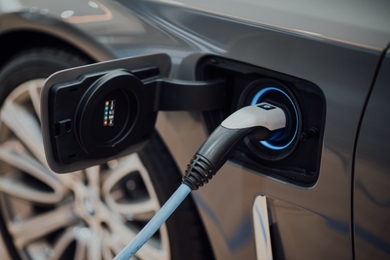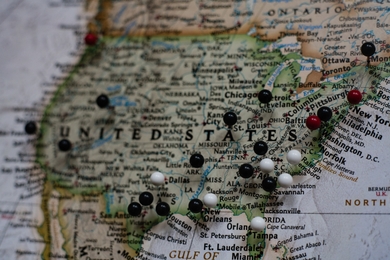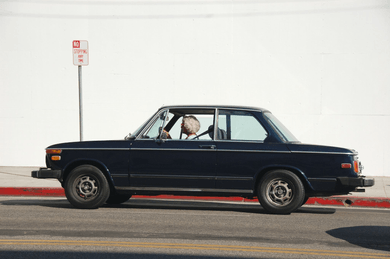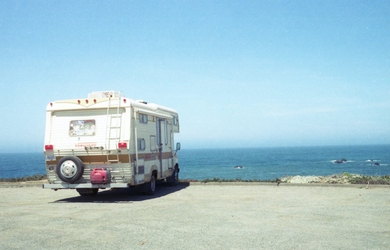What is the Difference Between Buying and Leasing a Car? | Gabi

When it comes to getting a new set of wheels, you may debate leasing a new car versus buying one. While both options have merit, the one that’s right for you will depend on a few personal factors: namely, your financial situation and what kind of car owner you are.
So, what is really the difference between buying and leasing a car, and how do you decide which one to choose?
Leasing versus Buying a Car
The difference between buying and leasing a car is similar to the difference between renting a home and taking out a mortgage.
With a lease, you are given a specific term — or timeframe — during which to drive that vehicle. When the term is up, you’ll need to return it to the dealership. This is quite different from buying a new car, where you become the owner until you choose to sell it.
Ownership isn’t the only difference between leasing and buying, though. There are also differences in monthly price, driving limits, and even maintenance and repair responsibilities.
Questions to Ask Before Making a Choice
Before deciding whether to buy or lease your next vehicle, there are a few things that you should ask yourself. These will help determine the right option for you:
- How many miles do you drive annually?
- How long do you typically keep a vehicle?
- What is your credit score?
- Are you able to buy with cash, or are you willing to take on new installment debt?
- How much can you afford to spend monthly on your car payment?
- How important is it for you to have the newest or most luxurious vehicle?
- How well are your vehicles treated (i.e.: do you have pets or children, drive off-road, etc.)?
- If you buy, will you get a vehicle with an extended warranty?
While these aren’t the only determining factors, these answers should help point you in the right direction between buying and leasing.
When You May Want to Buy Your Car
For the majority of drivers, buying a vehicle just makes more sense. This is especially true if you:
- Want to build equity that you can use when it comes time to sell your vehicle or trade it in
- Drive a lot annually, and would surpass a lease’s mileage limit
- Have kids, pets, and otherwise tend to accumulate wear on your car
Buying means that the vehicle is yours and yours alone. You can drive as much or as little as you want, and you’re not stuck fixing the paint if it gets scratched in the parking lot (unless you want to).
One of the biggest reasons for buying versus leasing, though, is that you aren’t just “throwing your money away each month.” You’ll slowly begin building equity in your car that you can use later on when you sell or trade it in. If and when you pay the vehicle off entirely, you’ll also get to enjoy being payment-free for as long as you want.
When you lease, you miss out on both of these perks. No matter how many monthly payments you make, your vehicle will not build any value (for you). Plus, you’ll never reach a point with that car where you can stop making those monthly payments.
Why Buying Isn’t Ideal
Of course, there are still downsides to buying a car.
As the owner, you’ll absorb any depreciation of the vehicle from the time you buy until the time you sell (which can be significant). When leasing, the manufacturer absorbs this loss in value instead.
You’re responsible for all major repairs if your vehicle goes out of warranty. With a lease, you’ll always be covered by a comprehensive warranty.
Unless you can afford to buy something new regularly, you’ll likely be driving the same car for a long time as a buyer. When you lease, however, you’ll get to enjoy the newest cars and technology every few years. Then, as you’re getting bored with your car and new technology is introduced, it’ll be time to turn in your lease and get something new.
Lastly, if you take out an auto loan, it will sit on your credit report until the debt is paid off. This could impact you if you’re trying to do something with your credit, such as buying a home. Additionally, you could wind up with a negative equity situation if your car depreciates faster than you pay down your loan balance. Without GAP coverage, this could be financially devastating if your vehicle were to get totaled.
When You May Want to Lease Your Car
If you enjoy driving new vehicles with the latest technology, leasing is probably a better option than frequently buying a new car. Leasing also comes at a lower monthly price, as well, meaning that you can afford to choose more luxurious vehicles — and get something new every few years.
Leasing is also great if you don’t ever want to deal with the hassle of auto loans, major repairs, or selling/trading in your vehicle when you want something new. If you have less-than-ideal credit, or simply don’t want a vehicle on your credit report, leasing is probably a better option than buying.
Why Leasing Isn’t Ideal
For many people, though, leasing isn’t the wisest decision.
Yes, it comes with a lower monthly price tag. However, you won’t build any equity in exchange for those monthly payments, so the entire cost to “rent” your car for a few years is forfeited.
You are responsible for any excessive wear that is caused to your leased vehicle. If your children stain the carpets or a leather seat is accidentally ripped, you can’t just opt to live with the damage — you’ll need to pay to fix it when the lease is up.
Drive too many miles in your lease? You’ll pay for the difference between what you drive and what was allotted in your lease term. This added cost can be substantial; depending on your contract, you can expect somewhere in the neighborhood of $0.15-0.25 per mile.
Is it Better to Buy or Lease a Car?
There are many drivers who swear by auto leases, especially if they always want something new and reliable in the driveway. Even with the trade-offs, leasing can be worth it if you don’t want to deal with the hassle of car-buying — including auto loans, major repairs, and selling the vehicle later down the line.
Of course, there are many downsides to leasing as well, which can make buying an even better decision. Not only will you build equity in a purchased vehicle over time, but you can drive it as you please. There are no worries about mileage limits or paying for damage after your toddler takes a marker to the cloth seats
In order to decide which is the better choice for you and your family, you’ll need to balance your wants with what makes more financial sense. Take a look at your credit score, exactly how you drive your vehicles now, and what you can afford in both the short- and long-term.
Between buying and leasing, which one makes sense for you?









